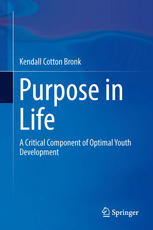

Most ebook files are in PDF format, so you can easily read them using various software such as Foxit Reader or directly on the Google Chrome browser.
Some ebook files are released by publishers in other formats such as .awz, .mobi, .epub, .fb2, etc. You may need to install specific software to read these formats on mobile/PC, such as Calibre.
Please read the tutorial at this link: https://ebookbell.com/faq
We offer FREE conversion to the popular formats you request; however, this may take some time. Therefore, right after payment, please email us, and we will try to provide the service as quickly as possible.
For some exceptional file formats or broken links (if any), please refrain from opening any disputes. Instead, email us first, and we will try to assist within a maximum of 6 hours.
EbookBell Team

5.0
108 reviewsThis volume integrates and makes sense of the growing body of theoretical and empirical research conducted on purpose across the lifespan. It opens with a comprehensive yet detailed discussion of the definitions of purpose most commonly used in studies on the topic. In addition to defining the construct, the author also discusses its philosophical roots and distinguishes it from related concepts, including meaning, goals, and ultimate concerns. This volume discusses the disparate perspectives on the construct and addresses the tendency to position purpose in the broader frame of positive psychology. It synthesizes distinct strands of research on purpose across the lifespan, it explores studies on the daily and longer-term experience of a purposeful existence, and it delves deeply into the wide range of measurement tools that have been used to assess the purpose construct. Further, it examines the prevalence and forms of purpose among diverse groups of youth and discusses the developmental trajectory of the construct. Other topics discussed include the central role of purpose in supporting optimal well-being and positive youth development. The book closes with empirically-supported steps adults, educators, and mentors can take to effectively and intentionally foster purpose among young people and makes recommendations for future research on the topic.